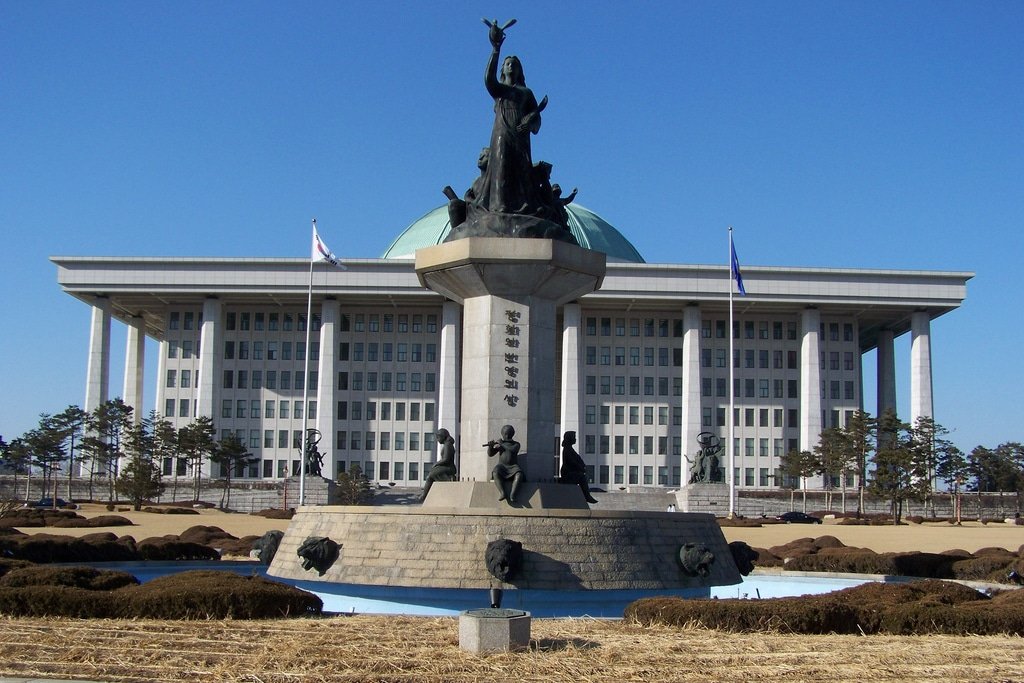On December 10, South Korea’s National Assembly along with several members of the Congress will have the first official debate in this country about crypto involving high profile government officials.
The meeting is arranged by the local market’s largest cryptocurrency exchanges including Upbit, Bithumb, Korbit, Gopax, and Coinone that, together with executives of digital asset trading platforms and over-the-counter (OTC) exchanges, will discuss the regulatory scope of the government on crypto with members of the Congress.
It is expected that talks will revolve around transparency and efficiency of crypto exchanges establishing it’s importance. Also, what can be an important subject of talk, is establishing the importance of practical regulatory frameworks.
Lee Seok-wu, the president of Dunamu, a subsidiary of Kakao that operates Upbit, the country’s largest digital asset exchange, is set to lead a panel participated by a former UBS executive, the chairman of KFTA, Gopax president, and members of the FSC.
Last month, the government of South Korea and the Financial Services Commission (FSC) officially allowed banks to work with cryptocurrency exchanges and blockchain-related businesses by providing virtual bank accounts.
Nowadays, there is almost no doubt that South Korea has already become one of the leading countries in cryptocurrency adoption. A relatively small, yet tech-savvy population combined with government backing is setting up South Korea as the central hub for blockchain innovation for years to come.
South Koreans are estimated to account for 30% of total cryptocurrency trading worldwide, and 30% of all salaried workers in South Korea own and exchange cryptocurrencies. No one in the world is as “blockchain enthusiast” as them and, given their recent history of being ahead of the game with innovation, it is difficult to imagine a world in which cryptocurrencies could exist without the South Koreans’ support.
Blockchain as One of Four Core Pillars of the Korean Industrial Revolution
Recently, Cindicator, a platform that combines market analysis and machine learning for financial analytics, published a report ‘Korean Market Analysis’ confirming the leading role that South Korea has occupied in terms of crypto and blockchain adoption and use cases.
The analytics platform took everything into consideration – from market volumes to financial regulations. One project that features prominently on the report is the ICON blockchain platform which is South Korea’s largest blockchain project.
The report noted:
“These projects and their eventual success are obviously a great indication of what crypto believers in the country feel the new technology could do in the future.”
According to the report, the success of crypto and blockchain in the country can be attributed to the development of fair crypto taxation and overall crypto & blockchain regulations by the country’s financial watchdogs.
The South Korean government recognizes the blockchain as one of the four core pillars of the Fourth Industrial Revolution and has worked with companies in the local market to bring in young talents into the ecosystem.
They said that they want digital asset trading platforms to take upon a vital role in providing liquidity to investors and recognize the importance of a transparent and efficient cryptocurrency exchange market for the long-term growth of the blockchain space.
At the beginning of the year, the governor of the Financial Supervisory Service, Choe Heung-sik, said the government “will support cryptocurrency trading if normal transactions are made,” and added that the government will “encourage” banks to work with cryptocurrency exchanges. The remarks by Heung-sik, were seen as being in a very much of a contrast to the government’s previous stance that it could consider shutting down local virtual currency exchanges.
Already in July, on the cryptocurrency exchanges of South Korea, a new industry named “Cryptocurrency Exchange and Brokerage” able to operate at a large capacity with full government support, was formed.
Plans of Cryptocurrency and ICO Taxation
Last week, it has been revealed by South Korea’s incoming finance minister Hong Nam-Ki at the meeting with the country’s Democratic Party, the financial authorities are considering an option to introduce a cryptocurrency tax. According to him, the South Korean government is planning to tax cryptocurrencies and initial coin offerings. Though the ministry is already working on new taxation plans, they will be presented only after consultation with experts.
Also, during the recent meeting in Buenos Aires, Argentina, Global leaders of the G20 have arrived at a consensus of introducing international taxation system for the cryptocurrency market. The leaders of the G20 economies have signed an agreement to start working on having a solution for crypto tax.
Although the South Korean government has taken a harsh stance on cryptocurrency regulation, this was more a reaction to problems within the ecosystem, such as hacking, fraud allegations and scam ICOs. Recent developments suggest that this position might gradually reverse in the future. For example, the Korean government has announced a 1 trillion won (USD 880 million) package to be spent in 2019 on blockchain development as part of a 5 trillion won budget to stimulate economic growth through innovation.
Being at the forefront of cryptocurrency adoption where 1 out of 2 people is engaged in either crypto investing or trading, South Korea stonily banned all the ICO’s and cryptocurrency trading within their country, yet the cryptocurrencies remained legal waiting for better days to come.
